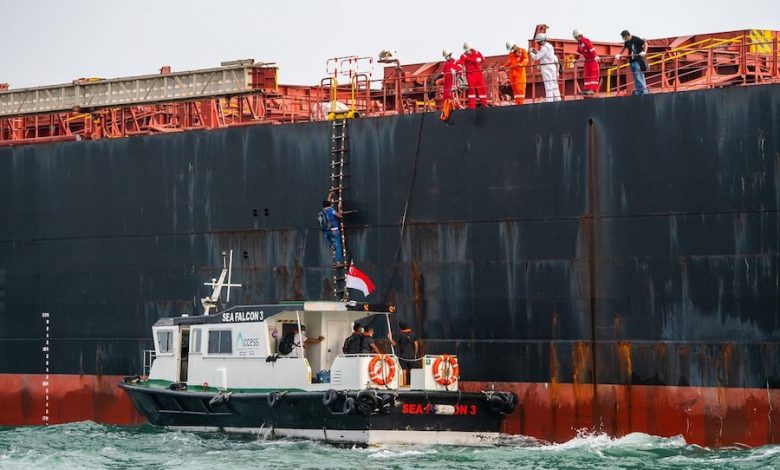Omicron fears already playing havoc with crew changes

The omicron strain of Covid-19, first identified in South Africa last week, is already causing havoc to crew change operations around the world.
Travel restrictions have been rushed in at many key hubs over fears that the new variant is more contagious than earlier strains. Singapore, one of the most important crew change hubs in the world, has barred the entry of vessels from Africa while another important Asian hub, Hong Kong, now has 44 countries on a high risk list, meaning ships that have called at these nations 21 days or less to arrival at the Chinese city will not be allowed to carry out crew change.
The omicron concerns come at a time where the crew change crisis had been easing with latest data showing less seafarers have been working onboard vessels beyond the expiry of their contract in recent weeks.
“The spread of the new omicron variant could lead to a reversal of these positive trends. It is important that governments treat seafarers as key workers and continue to allow crew changes, when the proper health protocols are respected,” commented Kasper Søgaard, managing director, head of institutional strategy and development at the non-profit organisation Global Maritime Forum, which helps tracks crew change numbers.
“The travel restrictions being implemented in response to the omicron variant are nothing short of deeply alarming,” said Rajesh Unni, founder of Singapore shipmanager Synergy.
“We are bracing for impact and buckling up our seatbelts. We are expecting longer quarantine period, tighter testing regime and restrictions for vessels coming from South Africa and neighbouring countries,” warned Carl Schou, president and CEO of Wilhelmsen Ship Management.
Kishore Rajvanshy, managing director of Fleet Management, one of the world’s top three shipmanagers, revealed some Fleet crewmembers have already become stranded in South Africa due to travel restrictions.
“We’re all holding our breath and hoping that this new variant isn’t going to have a long-term effect on circumstances that are already challenging,” Rajvanshy told Splash.
Henrik Jensen, CEO of crew management specialist Danica, said that his company has also already had to cancel a crew change in South Africa as the booked flights for the off-signing crew were cancelled.
“We cross our fingers that the countries which are now allowing seafarers through for crew changes will continue to do so and that the availability of international flights will not be affected too much,” Jensen said.
At its peak, the crew change crisis saw more the 400,000 seafarers working beyond their contract limits last year.
“Given that we’ve already had a humanitarian crisis at sea in 2020, by now systems should be in place globally to enable smooth crew changes, priority air travel, immediate medical assistance and rapid repatriation,” Synergy’s Unni said, calling once again for global recognition that seafarers are key workers and that they should have access to green channels to enable them to work and return home.
Unni also hit out at the “patchwork” of vaccine recognition rules that he argued make very little sense.

The Omicron variant…..the weakest most mild yet. But hey, let’s keep up the fear mongering and hysteria anyway. 99.6% survive covid, and 99.997% will survive the Omicron variant. Funny how the journalists and politicians….the ones who haven’t lost $1 since covid arrived, are the ones who seem to enjoy this PLANdemic.